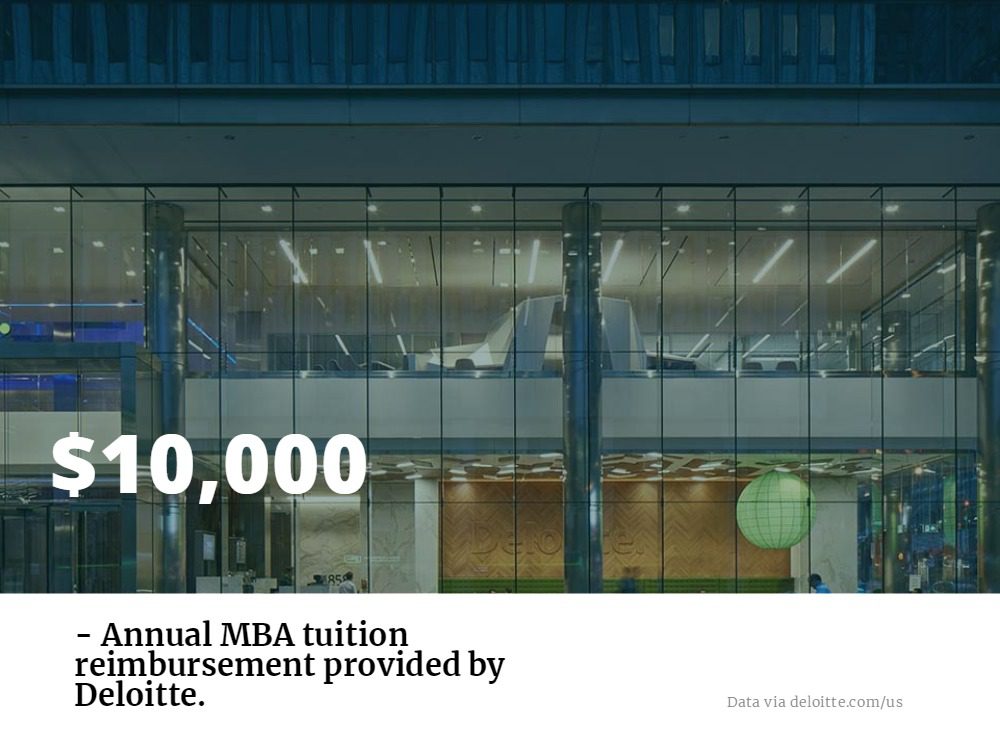What They’re Saying: Zuckerberg Testifies Amid Facebook Scandal

Earlier this week, ultra-rich and seemingly malnourished social media monolith Mark Zuckerberg testified before a continually befuddled U.S. Congress about the Facebook scandal regarding the private information of its unwary users.
However, despite getting turned into a plethora of memes during his time in Washington DC, it’s patently unclear what, if anything, will come as a result of the testimony, in which Zuckerberg said that data was even coming from users who didn’t actually have their own Facebook accounts.
Zuckerberg’s appearance before Congress came within the short window of time in which Cambridge Analytica—the other company embroiled in ongoing Facebook scandal—watched as its CEO Alexander Nix stepped down from his role. Check out how business schools are reacting to the recent news below.
In the first of two Congressional hearings this week, @finkd made no promises to support new legislation or to change how @Facebook does business, despite recent data breaches and controversy. https://t.co/72Xuv4DUge @ReutersBiz.
— MIT Sloan Experts (@mitsloanexperts) April 12, 2018
When I opened my file, it was like opening Pandora’s box. (Via @nytimes) https://t.co/VQl9Diu3pM
— MIT Tech Review (@techreview) April 12, 2018
Marketing and Strategy Professor Tim Derdenger talks with @Marketplace @Erika_Beras about the fallout from Facebook’s mishandling of user data and impact on other advertising revenue business models, like Google #TepperFaculty https://t.co/C30HJNX69T pic.twitter.com/74lOiPxOWH
— Tepper CMU (@teppercmu) April 11, 2018
.@profgalloway discusses the controversy surrounding #Facebook via @bsurveillance. Listen here: https://t.co/Yy9i9NQNKv
— NYU Stern (@NYUStern) April 11, 2018
Why was protecting data not a top priority at Facebook before the Cambridge Analytica scandal blew up? “This probably reflects on managerial experience” suggests @Wharton’s David Hsu https://t.co/vBXafqKdGW
— Knowledge@Wharton (@whartonknows) April 7, 2018
How to Get Your Employer to Pay For Your MBA

Earning an MBA holds tons of value in the business world—an advanced business degree can open doors that may otherwise have been closed, and boasts a high return on investment thanks to the top-level salaries that MBAs command.
Graduate school—and all of the coursework that comes with it—can be an intimidating challenge, but paying for it doesn’t have to be. Aside from scholarship, grant and fellowship opportunities at business schools across the country, more and more companies are placing a higher importance on tuition reimbursement programs, and expanding opportunities for paid MBA tuition reimbursement.
How can you get your employer to pay for your MBA studies? Let’s take a closer look.
Getting Your Employer to Pay For Your MBA
First thing’s first: You need to find out if your current employer offers tuition reimbursement to its employees. The terms of reimbursement vary depending on the company, with some corporations not offering any sort of program at all. Those that do offer some sort of compensation may do so on a course-by-course basis, or as a lump-sum reimbursement package for coursework in relevant degree plans.
“Organizations typically support MBA pursuits for two reasons,” J. Todd Rhoad, managing director of Atlanta’s BT Consulting, told USA Today. “Employee development and succession planning. In the first case, companies support the cost of MBA programs as part of their commitment to employee training and development.”
If you want to convince your employer that your education is worth investing in, you’ll need to show that earning an MBA will further your business acumen and understanding of your industry, and ultimately help your company reap those benefits.
“Usually, an employee has to already been delivering great results within the company,” Roderick Lewis, international relations director at the ISCTE Business School, University Institute of Lisbon, told Business Insider.
“If you haven’t already convinced your company, then asking them to [sponsor your education] becomes really difficult,” Lewis says.
USA Today also outlined a few checkboxes to hit when determining how valuable earning an MBA would be for your organization:
- Do current members of middle or upper management hold advanced business degrees?
- Does your company have the available revenue to invest in employee education?
- Would someone with the type of advanced training you seek bring clear advantages to the company?
If those point hold true in your situation, then start researching which programs specialize in providing the skills that your company needs. Keep in mind: You do not have to limit yourself to business schools in your metro thanks to popularity of Online MBA programs. There may have once been a stigma against online programs, but the of the matter fact is that many of the top online MBAs on U.S. News & World Report’s annual rankings also rank highly on the publication’s top campus-based graduate business programs list.
Some of these schools include:
- University of North Carolina – Chapel Hill (Kenan-Flagler)
- Indiana University – Bloomington (Kelley)
- Temple University (Fox)
- Arizona State University (Carey)
- University of Florida (Hough)
- Carnegie Mellon University (Tepper)
- University of Texas – Dallas
Once you’ve found the right program, you’ll want to craft a brief proposal for your employer. In it, you’ll want to mention how you fit the company’s tuition reimbursement policy, and list the advantages that continuing your education can bring you and your company. Don’t shy away from providing data on how much assistance you may need and how this investment will pay off for everyone, while also ensuring your employer that you’ll remain committed to the company during your degree program, or won’t jump ship after earning your degree.
“A proposal should address the benefit to the company,” Rhoad says, “(including) areas where the company could improve and how you will help them, a review of the courses to be taken and how they will provide knowledge that can help improve the company’s performance.”
Companies That Provide MBA Tuition Reimbursement
Investopedia recently compiled a list of companies have stated that they place a high value on their tuition assistance benefits, and provide tuition reimbursement for the educational costs of an MBA.
According to Investopedia, consulting companies lead the market in tuition reimbursement programs for MBA courses. These firms also pay the highest salaries for MBA alumni. Deloitte has the most robust tuition reimbursement plan, providing employees with up to $10,000 per year in MBA reimbursements. The firm requires two years of work with the company and a commitment to work for the company after graduation in order to receive the tuition assistance benefit.

Financial institutions and banks also place a high value on employees with MBAs, and provide tuition assistance. One example is Bank of America, which provides employees with annual tuition assistance of up to $5,250 for advanced degree coursework. Wells Fargo also has a track record of paying for MBAs, doling out up to $5,000 annually for tuition expenses.
The booming tech sector is also hiring MBAs left and right, with some firms developing their MBA talent in house by offering to pay MBA tuition expenses. Apple tops the list of tech companies offering tuition assistance, providing reimbursement of up to $5,000 annually. MBA degrees are even more coveted in the the specialty defense technology sector, as Raytheon, one of the top defense technology companies in the world, offering to pay up to 100 percent of employees’ college tuition for graduate school.
Other leading companies offering tuition reimbursement to employees include:
- Chevron: A market leader in the energy sector, Chevron offers offers tuition reimbursement of up to 75 percent for its employees.
Ford: Ford’s education tuition assistance program provides employees with tuition reimbursement of up to $5,000 annually for an MBA. - Procter & Gamble: This firm has one of the leading tuition reimbursement benefits in the consumer goods industry, providing reimbursement for up to 80 percent of educational costs with a limit at $40,000.
- AT&T: This telecom giant provides employees with up to $5,250 annually for tuition assistance, for a maximum reimbursement of up to $25,000 for graduate school courses.
Top Schools Tackle Sexual Harassment, NFL Protests, and More

Should business schools teach ethics and social responsibility? In the past, top MBA programs stuck to a fairly typical curriculum: finance, marketing, accounting, economics. And while those topics still comprise the core of most MBA programs, they’re now only a part of the whole.
Beyond allowing MBA students to focus their studies in areas like entrepreneurship or technology, MBA programs are also taking on some of the most prominent ethical topics of the day, asking students to weigh in on current headlines and happenings. It’s the MBA ethics debate.
According to a United Nations group survey of business school students from around the world, students believe that ethics are a business’s most important responsibility. According to the report, “the exposure to, and teaching of, business ethics does not merely assist business leaders to resolve moral dilemmas. More importantly, it matures their proficiency in moral judgment and their ability to incorporate social issues in the decision-making process and assists them in implementing this in an all-inclusive manner.”
For example, last year a group of business executives—including the CEO of PepsiCo and head of General Motors—got together to dissolve two business councils that consulted with President Trump after insensitive remarks about the white supremacist violence that took place in Charlottesville, VA. And other executives such as the CEO of Patagonia, Yvon Choinard, have been vocal about political and ethical issues—even using their companies to take positions on social responsibility that would typically be considered outside the scope of business.
So, it’s no wonder many business schools have been making business ethics a more important part of their curriculum. The question is, “How should business ethics be added to the MBA curriculum, and how is it being added currently?” It depends on the school.
At Georgetown University’s McDonough School of Business, Professor Edward Soule teaches courses on business ethics, corporate social responsibility, and leadership. During these classes, he told the New York Times that he has assigned coursework covering a range of trending topics including sexual harassment at Uber, social justice protests by N.F.L. players, and how companies like Amazon have responded when attacked by President Trump.
“Something has changed,” Soule said. “I would be kidding you if I told you there wasn’t a different vibe in the classroom. Ethics and values have taken on more significance. It has to do with all of the things going on in this administration, often things that challenge our understanding of ethics and leadership.”

Students discuss the recent NFL protests in Prof. Ed Soule’s class at Georgetown’s McDonough School of Business. Photo via Justin T. Gellerson for The New York Times.
Georgetown McDonough is also home to the Institute for the Study of Markets and Ethics (GISME), a center that examines the ethical issues inherent in the functioning of a market society. Students, faculty, and researchers who participate in the center explore ethical questions as they relate to business and bring ethical considerations to bear on policy decisions regarding the regulation of markets. These are especially salient issues for Georgetown McDonough given its Washington D.C. location.
“At the McDonough School of Business, we have developed a method of teaching business ethics that includes normative experiential learning, communicates in terms readily understood by business students, and involves actual ethical decision-making on the part of the students,” Michael Douma, assistant research professor and director of GISME, said in a news release. “We have found that our approach results in students being more invested in the course and more committed to resolving ethical issues that confront them in a business environment.”
Another example can be found at Carnegie Mellon’s Tepper School of Business. According to John Hooker, a professor of operations research and business ethics and social responsibility, ethics has been a part of the Tepper School curriculum since the 1990s. “Our program was apparently the first to introduce the topic (1966), as part of a course on business law,” Hooker told us. “The ethics presence has gradually increased over the years, but we ethics faculty often have to fight for it. My view is that a required ethics course should be part of the picture.”
And Leanne Meyer, co-director of the Accelerate Leadership Center at the school, told the New York Times, “There’s a turning point in what’s expected from business leaders. Up until now, business leaders were largely responsible for delivering products. Now, shareholders are looking to corporate leaders to make statements on what would traditionally have been social justice or moral issues.”
As for ethics and MBA students, Tepper’s core offering in Ethics and Leadership is one of the only second-year courses it requires its students to take. The course teaches students how to foster their ability to reason and how to handle the ethical implications of managing organizations and people.
“The basic lesson for MBA students is that business ethics is not optional,” explained Hooker. “It is the basis for the social infrastructure that makes business possible, much as engineering is the basis for physical infrastructure. It requires careful analysis and training, no less than engineering or finance. This is why we need a stand-alone ethics course. Business ethics training teaches us to do ethics with our brains rather than rely on gut feelings. Otherwise, we have no way to reach consensus on the ground rules.”
In the end, there are many options for MBA students interested in ethics, though ultimately it up to the students themselves to raise topics that are pressing to them. “Ethics courses often focus on the hot topics. This stimulates discussion and raises course ratings, but it generates more heat than light,” said Hooker. “I focus on issues that students themselves raise. I also emphasize cross-cultural ethics, because business is global, and norms vary enormously around in the world. U.S. students typically have little awareness of this.”
Whether through case studies, guest speakers, simulations, competitions, or another initiative, the leading MBA programs dive into business ethics and corporate responsibility using a range of approaches. To learn more about Professor Hooker’s approach to ethics, you can check out his blog: Ethical Decisions.
This article has been edited and republished from our sister site, Clear Admit
Temple, Carnegie Mellon Top U.S. News 2018 Online MBA Rankings

The annual U.S. News & World Report 2018 Online MBA rankings are officially in, with the Fox School of Business at Temple University, once again, taking the top honors.
How the House Tax Cuts and Jobs Act Could Affect Grad Students

Days before the House of Representatives voted to pass the House Tax Cuts and Jobs Act on the morning of Thursday, November 16, budget experts at the Wharton School at the University of Pennsylvania broke down the proposed bill, discussing its broad potential impact.
The breakdown, per the Wharton Budget Model, focused on three principle findings:
- “This brief reports Penn Wharton Budget Model’s (PWBM) dynamic analysis of The House Tax Cuts and Jobs Act (TCJA), as amended and reported out by the Ways and Means Committee on November 9, 2017.”
- “After including the tax bill’s effects on economic growth, TCJA is projected to reduce revenues between $1.5 trillion and $1.7 trillion. Debt rises by about $2.0 trillion over the same period. Looking beyond the 10-year budget window, by 2040, revenue falls between $3.6 trillion and $4.4 trillion while debt increases by $6.4 to $6.9 trillion.”
- “In 2027, GDP is between 0.4 percent and 0.9 percent higher than with no tax changes. By 2040, the difference between GDP under the House tax bill and current policy is between 0.0 percent and 0.8 percent, due to larger debt.”
The research focused on broader implications, rather than zeroing in on how the bill potentially effects different socioeconomic classes. In conclusion, the research “projects that The House Tax Cuts and Jobs Act reduces federal tax revenue in both the short and long-run relative to current policy. In the near term, there is a small boost to GDP, but that increase diminishes over time.”
Brian Naylor at NPR notes that the bill was passed mostly on bipartisan terms, with Republicans in the U.S. House of Representatives largely pushing it through to the Senate without much push-back. “The vote was almost along party lines, with no Democrats voting in support of the bill and some GOP defections over provisions in the measure that would eliminate important tax deductions taken by constituents in some high tax states,” he writes.
The bill is less likely to pass in the Senate as it did in the House, according to reports from the New York Times. If it were to, however, the new legislation would directly affect graduate students across the board—including MBA students.
Section 117(d) of the bill, which can read here, indicates that all graduate students that receive any kind of tuition waiver will still have to pay taxes on the removed costs. For MBA students at schools like the Tepper School of Business at Carnegie Mellon University, this could mean a year-end cost increase of at least 25 percent, if not more. For students in Ph.D. programs, which often give tuition waivers to help bring in valuable research, the costs can be significantly higher, according to CNBC.
“This makes graduate school unattainable for anybody not already very well off,” 24-year-old grad student Kelly Balmes told NPR. “It also creates a diversity problem, which graduate STEM programs already have.”
What Are The Differences Between The World’s Best Online MBA Programs?

Every year, the online MBA becomes an increasingly more attractive option for business school students. With the flexibility to pursue your degree at your own pace and the chance to choose the best MBA program for you without considering location, prospective MBAs can truly make the most of their degree. And though some may be worried about missing out on a traditional classroom experience and the community that comes with it, changing educational technology has made it easier than ever for students to play an important part in their school’s community—without getting out of your pajamas.
The new MetroMBA Online Metro has rounded up some of the best online MBA programs available to students. To help determine which program fits your needs, we take a look at what sets each program apart—and what might just make it the perfect MBA for you.
Fox School of Business — Temple University
The Online MBA Program at Temple University’s Fox School of Business has the distinction of being ranked as the best online MBA in the country, and the best online MBA for veterans, according to U.S. News & World Report. The Online MBA at Fox offers total flexibility for students, with the opportunity to complete the degree within anywhere from 20 months to six years. To help students feel connected with the Fox community, the program offers weekly live web conferencing sessions allowing students to stay connected to faculty and classmates, as well as providing one-and-one career coaching.
The Online MBA at Fox is structured around three required courses that help prepare students for the program, 36 credits that can be completed at the student’s own pace, and a final consulting capstone course that offers total business immersion. The Fox MBA has also been recognized for its benefits for frequent travelers or military members. About 17 percent of students in the most recent class had some form of military experience.
The Fox Online MBA offers a number of areas of study, ranging from HR Management, International Business, Real Estate, Statistical Science, and much more. After completing the program, students on average saw a $30,000-plus salary increase and a median salary of $105,000 three years after graduation.
Hough Graduate School of Business — University of Florida
Although online MBAs tend to be on the rise in recent years, the Hough Graduate School of Business was one of the first business schools to offer a fully accredited online degree—almost twenty years ago. Today, the Financial Times and U.S. News & World Report consistently rank the Hough Online MBA among the top programs in the country.
The Hough Online MBA is the perfect opportunity for students that travel extensively, may move while pursuing their degree, or have a number of weekend commitments. To ensure that students still get face-to-face time with the school’s faculty and classmates, students return to campus once every four months for periodic residencies, allowing them to stay in touch with the community.
The online degree at Hough can be completed in either a two-year or one-year format. Both degrees give students the chance to choose among four areas of focus for their degree: entrepreneurship, finance, marketing, and international. The Hough Online MBA may also be perfect for students looking to immerse themselves in a global business education, as it offers students the chance at a Global Immersion Experience. Students have recently traveled to areas such as Argentina, United Arab Emirates, China, and Ireland.
Kelley School of Business — Indiana University
The Online MBA at the Indiana University Kelley School of Business is made up of 51 credit hours, 39 of which are required courses. The remaining credits can be used towards electives that will help students narrow the focus of their degree in an area such as Business law and ethics, economics, marketing, project management, operations, and more.
Each quarter, Kelley also offers an AGILE course—Accelerating Global Immersion Leadership Education—which frequently partner with top business schools around the globe. Students have recently traveled to such areas as India, Myanmar, South Africa, Botswana and Brazil.
The Kelley Online MBA also stands out because it offers students the chance to earn a dual degree online, pairing their MBA with an online MS in Business Analytics, Global Supply Chain Management, Marketing, Strategic Management, or Entrepreneurship & Innovation.
CHECK THIS OUT: No GMAT, No Problem
Kenan-Flagler Business School — University of North Carolina
The Online MBA at the UNC Kenan-Flagler Business School, better known as the MBA@UNC, may take students anywhere from 18 to 36 months to complete and include nine core courses in foundational business fields, such as economics, introductory finance, business strategy, operations management, and more. Students may also choose from over 30 electives to focus their degree in a particular concentration such as entrepreneurship or management consulting.
The MBA@UNC also requires students to complete two in-person immersions, which may be completed domestically or—for students interested in global business—internationally. Through the Student Teams Achieving Results (STAR) and Doing Business In (DBI) program, students also have the chance to study abroad at an MBA exchange partner school.
The MBA@UNC stands out thanks to its many post-graduate resources thanks to the Career & Leadership team. Replacing traditional on-campus recruiting, a Virtual Company Information Sessions allow executives from a variety of industries throughout the country to communicate with students about the hiring needs of their companies. Alumni can access these resources at any point after their graduation and can also take additional MBA courses as needed for their career development.
Tepper School of Business — Carnegie Mellon University
Carnegie Mellon’s Tepper School of Business offers students a flexible online degree that is completed through a combination of online and on-site experiences throughout a 32 month period. Each week, students will have access to a 70-minute online course that allows them to virtually interact in real time. Throughout the year, they will also be required to attend six “Access Weekends,” held at the university’s various locations throughout the country. The Tepper Online MBA may be the program that provides the most opportunities for in-person contact with classmates and faculty, so students that are interested in more face time as part of their online program may be particularly interested in this degree.
Tepper students are provided with in-depth career coaching and recruitment opportunities. Students will also visit a number of major companies in the country, such as Google, Amazon, JP Morgan, and Microsoft. Within just three months of graduation, roughly 91 percent of students in the Tepper Online MBA program were offered a full-time role.
W.P. Carey School of Business — Arizona State University
The Arizona State University’s Carey School of Business online MBA degree is structured around just one course at a time, each five weeks long. Students are immersed in an inclusive online environment that allows them to interact with classmates through case-based projects.
Carey, in comparison to several other schools noted on this list, is also unique in its option of pursuing a concurrent online degree, such as a Master of Legal Studies, MSE in Electrical Engineering, or MS in Industrial Engineering.
